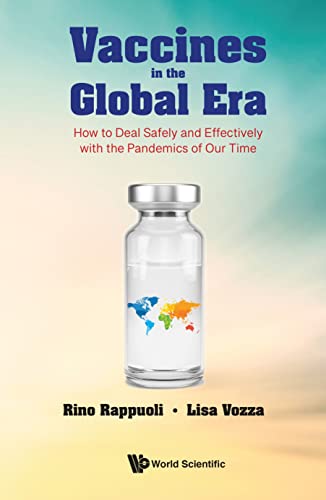
English | 2022 | ISBN: 1800611935 | 266 pages | True PDF | 92.82 MB
A new coronavirus, most likely spilled over from an animal species, has plunged us into the third epidemic of this kind in the last twenty years, against which there were neither vaccines nor therapies.
While we argue over the future of humanity, vulnerable to the ecological and environmental degradation that has enabled the pandemic, extraordinary technologies have been developed to combat infectious diseases. In just eleven months it was possible to develop, test and produce the vaccines that are gradually enabling us to escape the SARS-CoV-2 nightmare. In addition, with the legacy of the technologies developed against COVID-19, we will be able to overcome antimicrobial resistance—a slow but inexorable pandemic.
As vaccinologists are churning out increasingly precise and effective solutions, vaccine acceptance seems to be receding. Outbreaks of preventable diseases have prompted the health authorities of several countries to make childhood vaccinations mandatory again. Much remains to be done, but a public capable of distinguishing authoritative voices from misleading ones will be able to enjoy the vaccines of tomorrow more widely. Vaccines in the Global Era is an easy-to-read book that can be read by virtually anyone who wants to learn about the importance, effectiveness and safety of vaccines in preventing infectious diseases.
Vaccines are cheap, save countless lives, and are more effective than the best medicines. Let's try to make the best use of them for the health of the people and animals living together on this beautiful planet.
Contents:
About the AuthorsIntroductionOld and New EpidemicsThe Long History of VaccinesListen to ThisChasing Moving TargetsVaccines Wanted Against Four Big KillersUnpredictable Viruses: The FluA Pandemic of Our TimeHow to Vaccinate an Entire Planet Against COVID-19Vaccines for Whom?Appendix: How Do Our Defences Work?Dispelling 7 MythsMMaybe You Did Not Know That ...Further ReadingIndex
Readership: Can be read by virtually anyone who wants to learn something about the importance, effectiveness, and safety of vaccines in preventing infectious diseases. Also suitable for undergraduate and postgraduate students; researchers in basic biomedical disciplines; physicians; and health service policymakers.



